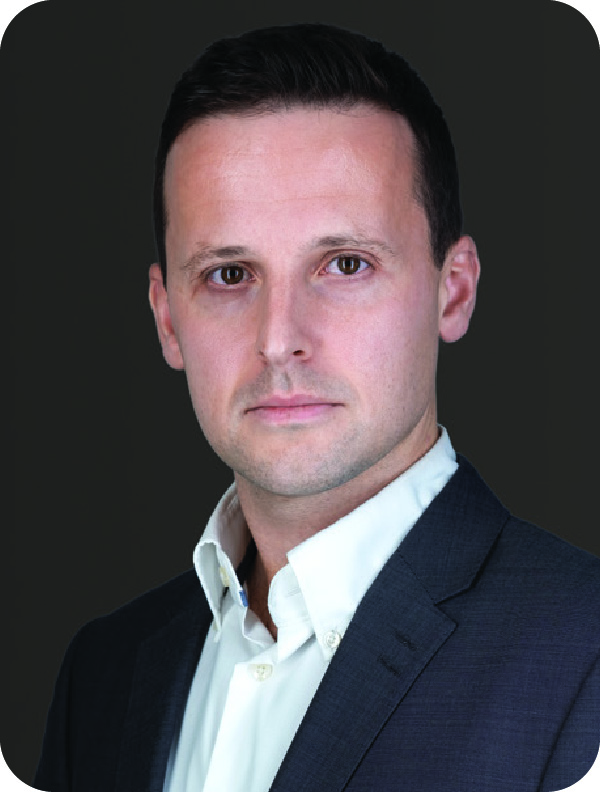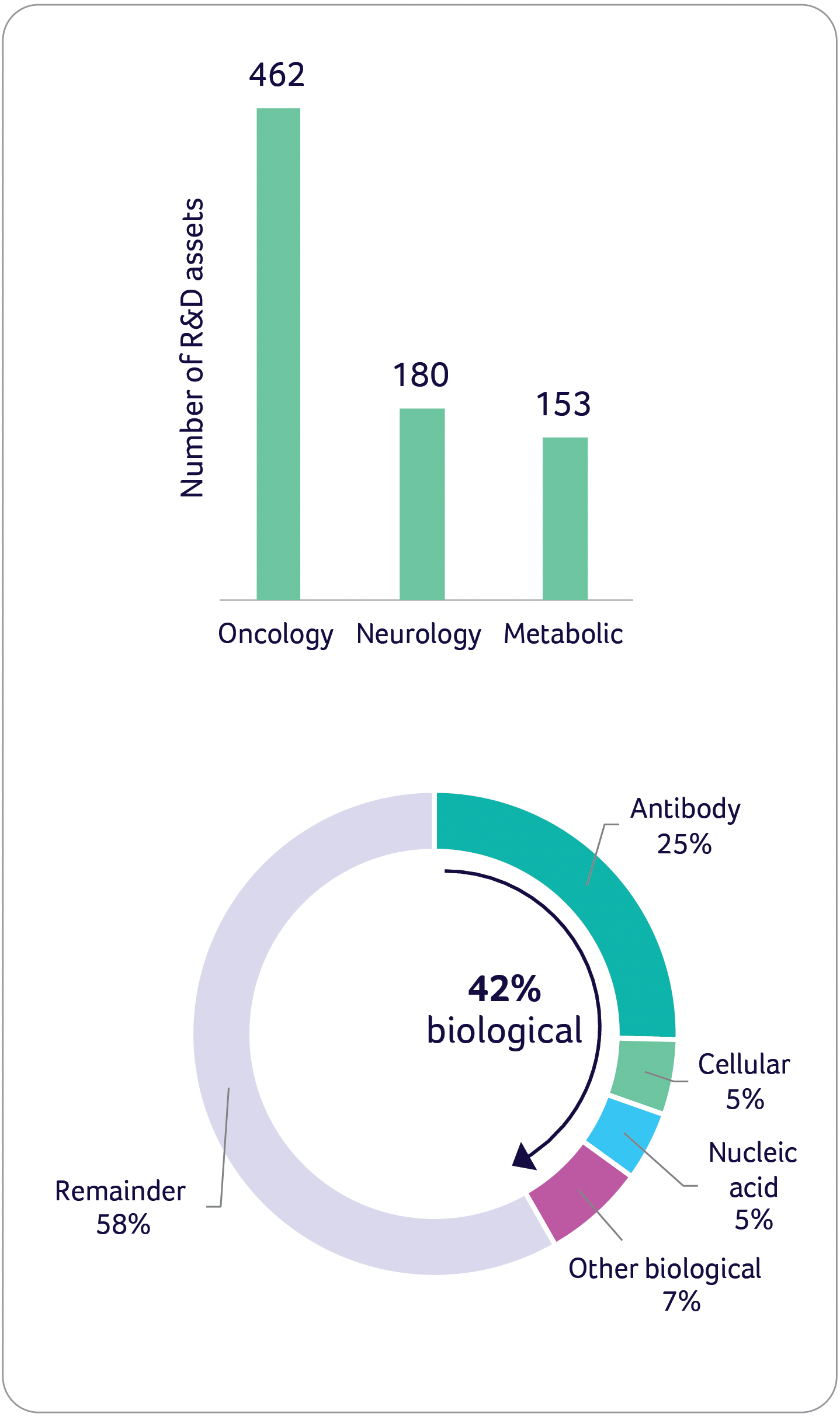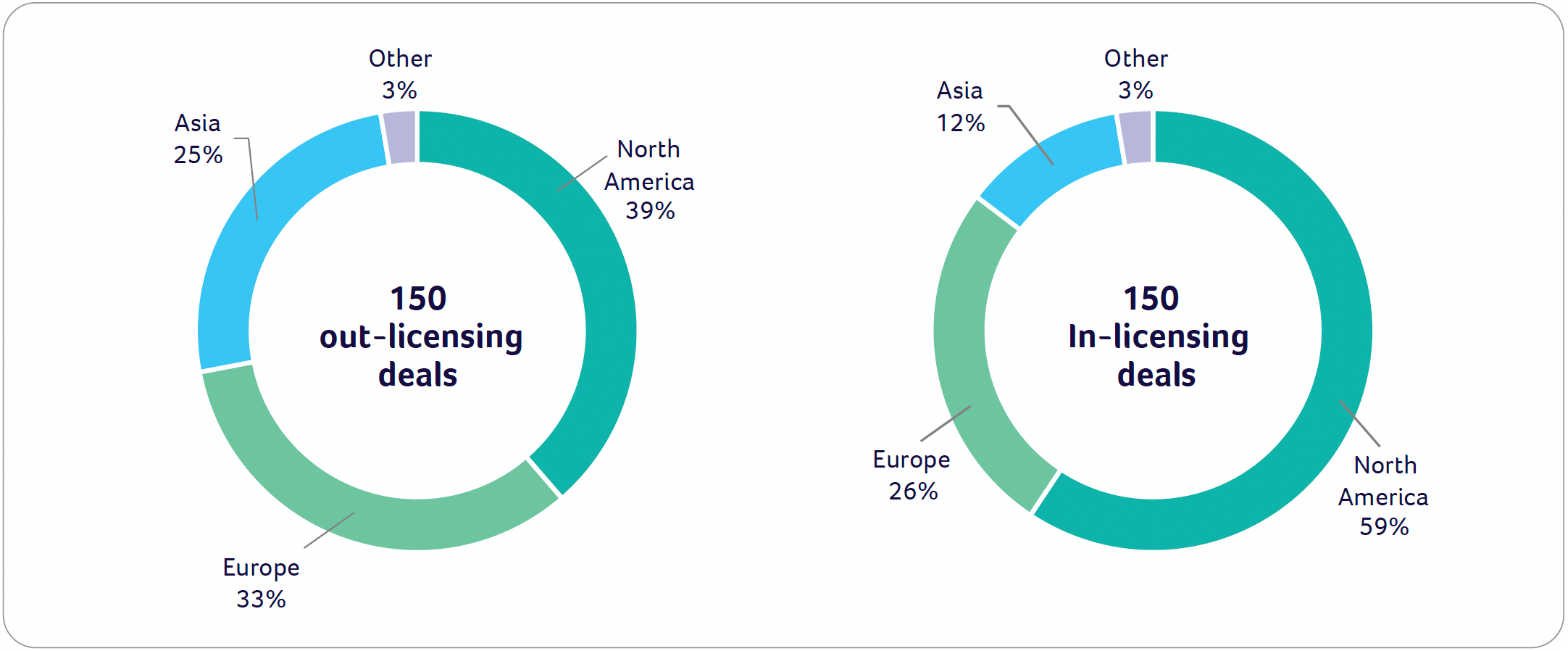- Get directions
- Leave a review
- Claim listing
- Bookmark
- Share
- Report
- prev
- next
- Tuesday, April 23, 2024 @ 11:00 am
Switzerland sits in a unique position. No other country possesses its concentration of biopharmaceutical capabilities across the entire value chain, from drug discovery through to commercialization. Its high innovative output and low domestic demand mean that continued success depends on an outlook that embraces international collaboration. Swiss biotechs are therefore the ideal partner, both for accessing innovation and providing the platform to make a global contribution.

Daniel Chancellor
Citeline | Thought Leadership and Consulting Director
Translating scientific excellence into attractive biotechnology businesses
For the 13th year in a row, Switzerland has finished top of the UN Intellectual Property Organization (WIPO) Global Innovation Index, this time edging out Sweden, the US, the UK, and Singapore.¹ This ranking is built upon the country’s ability to translate its inputs – investment, universities, and skilled workforce – into world-leading outputs such as intellectual property, manufacturing, exports, and brand value.
This is particularly the case in the biotechnology industry, where there is also the analogy of translating novel science into investible, commercially viable startups. While Switzerland has its fair share of leading academic institutions, and attracts impressive levels of funding on a per capita basis, it is the quality of its biotech output that is world-leading.
Since 2020, private and public Swiss biotech companies have raised a total of approximately CHF10 billion in debt and equity financing, (see EY article). Furthermore, partnering deals have generated an additional approximately CHF3 billion in upfront or licensing payments over the same time period.² The therapies and technologies being developed by Swiss firms are clearly attractive investment propositions, both for local and global investors.
Furthermore, the local infrastructure also strongly encourages international innovators to consider Switzerland as the base to begin a biotechnology business. An analysis of domestic biotech and medtech startups shows that 56% of founders hold a foreign passport. This sentiment was expressed by Juha Yrjänheikki, Chief Executive Officer of Basel-based biotech Aurealis, which spun out of Finland in order to capitalize on the Swiss ecosystem.³
Moving the headquarters to Switzerland really allowed us to tap into richer business development, funding and partnership opportunities.
Discovering the next generation of therapies
The fruits of this investment can be seen in the R&D pipeline of domestic biopharmas. Swiss companies currently have a collective pipeline of around 1’200 assets, spanning preclinical development through to lifecycle management for approved drugs.⁴ This collective footprint is among the largest in Europe, and importantly two thirds of these drugs are Swiss discoveries. Another third have been licensed from international sources, harnessing the infrastructure, funding, and expertise within Switzerland to further progress towards patients.

Large emphasis on unmet need and innovation
Within the pipeline, there is a keen focus on areas of particular unmet need, market opportunity, and novel science. The three major therapeutic areas under investigation are oncology, neurology, and metabolic, all of which are major drivers of industry growth. These are particularly well aligned with advances in multi-omics technologies, digital biomarkers, and the transformational effect of GLP-1 agonists.
This combines with an increasing emphasis on sophisticated biological drug classes. Almost half of drugs under development by Swiss companies are biologics, and this share rises further when looking at assets originated in Switzerland. Monoclonal antibodies remain a major focus for industry R&D (~25%), although cellular-and nucleic acid-based therapies continue to gain prominence (~5% each). In particular, Zug-based CRISPR Therapeutics gained global recognition after the approval of Casgevy, the first successful drug to employ gene editing technology. Casgevy works by altering a patient’s own hematopoietic stem cells to increase production of fetal hemoglobin, thus improving the lives of patients with sickle cell disease and beta thalassemia. Exemplifying the Swiss approach of collaborating beyond borders, CRISPR is partnered with Vertex to commercialize Casgevy internationally.
Although not strictly biological in definition, Switzerland is also building a heritage in the next generation of chemical-based drugs such as RNA therapies and protein degraders. Both Novartis and Roche are heavily investing through partnerships, while domestic biotechs such as Versameb and GlycoEra are building foundational platforms to advance these novel classes.

(Source: Citeline, Pharmaprojects, December 2023)
Biotechs are collaborating internationally
The relationship between CRISPR and Vertex is very typical. Many of the 800 pipeline assets originated by Swiss companies are either partnered, or will become available for licensing, in order to achieve an international reach. Since 2020, Swiss biotechs have completed 150 out-licensing or R&D alliance deals, featuring partners from across North America (39%), Europe (33%), and Asia (25%).⁵ The distribution is relatively even, indicating the readiness of Swiss firms to partner and export innovation across all borders.
Similarly, Swiss companies have signed a further 150 in-licensing deals over the same time period. Two thirds of these involve either Roche or Novartis, and the cross section of these partnerships shows the strong influence of the United States in shaping global R&D trends. Switzerland is an important gateway into Europe for US biotechs, while local innovations are in global demand.

Commercialization through the Swiss gateway
Many companies choose Switzerland not only on the strength of its scientific translation, but also as a base for commercialization. Through the presence of Novartis and Roche, two of the pharmaceutical industry’s giants, there is an abundance of experience in developing and launching novel pharmaceuticals. These two companies consistently launch multiple new active substances (NAS) each year, accounting for a majority of activity within the Swiss industry.⁶
This creates a large talent base and alumni network, which then attracts many multinational companies to choose Switzerland as a base for commercial operations. Jiangsu Hengrui and Moderna are two recent examples of rapidly growing biotechs that have established European headquarters in Basel.⁷
Amit Munshi, the former CEO of Arena Pharmaceuticals – a US-based company with a strong Zug base, before being acquired by Pfizer – explained this dynamic in the 2023 Swiss Biotech Report.⁸ “Over the years, I have set up Swiss hubs for three of my companies.The decision to do so was driven by a desire for operational excellence.” Other prominent biotech examples in the Greater Zurich Area include Alnylam, which carries a USD 20 billion+ valuation, and The Medicines Company, which was acquired by Novartis in 2020 for USD 10 billion.
Producing for a global audience
Completing the pharmaceutical value chain, Switzerland is also renowned as a manufacturing partner. As well as being home to Lonza, the global market leader by revenue, the wider ecosystem contains 65 CDMOs.⁹'¹⁰
According to data collected by EFPIA, Switzerland has the largest manufacturing footprint in Europe, producing EUR 60 billion of pharmaceuticals in 2021.¹¹ With a domestic market value of just EUR 6 billion, approximately 90% of Switzerland’s output therefore serves a global audience. In reality, this figure is much higher for many newer, more sophisticated drugs, including those that may have been discovered and developed locally.
Swiss capabilities in biologics and precision medicine will ensure that its CDMOs remain essential partners to the pharmaceutical industry for decades to come. Speaking at the 2023 Swiss Biotech Day, Hanns-Christian Mahler, CEO of Basel-based ten23, described the opportunity ahead.¹²
With the general trend in healthcare towards more personalized medicines, encompassing a diversity of therapeutic modalities and patient stratification requiring separate batches, demand is still present.
References
1 WIPO (2023) Global Innovation Index 2023
2 Citeline (2023) Biomedtracker
3 Citeline (2023) Swiss R&D Innovation: A Tale Of Two Firms Developing Cell Therapies For Wounds
4 Citeline (2023) Pharmaprojects
5 Citeline (2023) Biomedtracker
6 Citeline (2023) Pharmaprojects
7 Citeline (2023) From Hengrui To Moderna: Why More Biotech Companies Are Creating Swiss Hubs
8 Swiss Biotech Association (2023) Investing in Switzerland: Arena Pharmaceuticals - a global biopharmaceutical company benefiting from a presence in Switzerland
9 Genetic Engineering and Biotechnology News (2023) Top 10 Contract Development and Manufacturing Organizations
10 Swiss Biotech Association (2023) The Swiss Biotech Directory
11 EFPIA (2023) The Pharmaceutical Industry in Figures
12 Citeline (2023) Ex-Roche Executive Mahler On Past, Present And Future Of Swiss CDMOs
